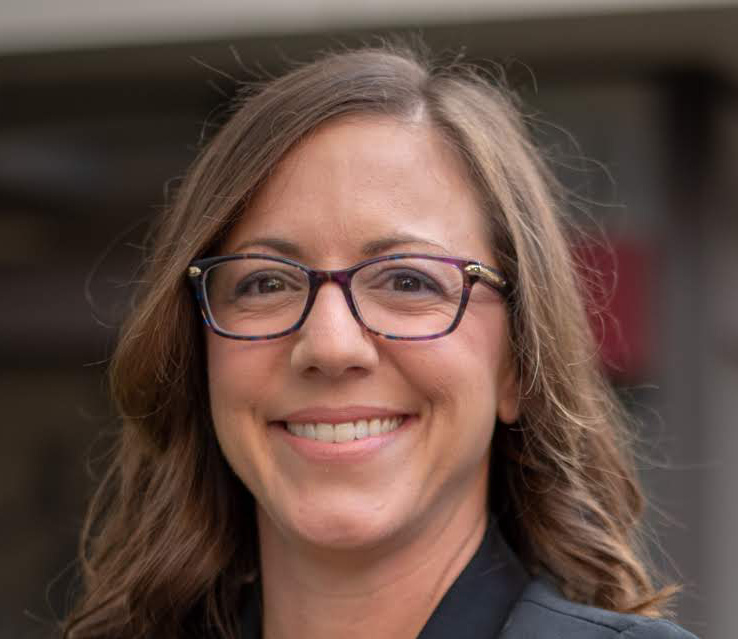MEP 2040 Steering Committee
Scope: The Steering Committee executes the strategic direction established by the Advisory Committee. Its members lead working groups. Members serve a 2-year commitment and attend bimonthly meetings. Members are added or replaced as needed by the MEP 2040 working groups.
-

Brian Johnson, Chair
HOK
-

Ghina Annan, Vice-chair
Stantec
-

Kayleigh Houde
Buro Happold
-

Rachel Wrublik
PAE Consulting Engineers
-

Josh Jacobs
WAP Sustainability
-

Erica Weeks
Paladin
-

Kristof Irwin
Positive Energy
-

Jamie Bond
Navigating Grey
-

Erin McDade
Architecture 2030
-

Nick Pederson
Glumac
-

Paul Herron
Sage Craftsmen
MEP 2040 Advisory Committee
Scope: The Advisory Committee develops the strategic direction for MEP 2040 and advises on advocacy, partnership development, and financial decision-making. Members serve a 1. 2, or 3-year commitment and attend bimonthly meetings. Members are up for renewal or replacement in the Spring.
-

Rob Bolin, Chair
CMTA
-

Kristy Walson, Vice-chair
BranchPattern
-

Peter Alspach
McKinstry
-

Ethan Heil
University of Virginia Office for Sustainability
-

Andrew Himes
Carbon Leadership Forum
-

Julie Janiski
Buro Happold
-

Luke Leung
SOM
-

Andrew Rhodes
Amazon
-

Orlin Velinov
Hilton Hotels
-

Mike Woolsey
Swegon
-

Vincent Martinez
Architecture 2030
MEP 2040 Working Groups
Members of the Working Groups make a minimum 1-year commitment, and a group’s meeting schedule is established in its first meeting.
Data Analysis & Reporting
The Data Analysis and Reporting working group for MEP 2040 focuses on developing educational resources like the Beginners Guide to Embodied Carbon while simultaneously conducting the MEP Whole Life Carbon Pilot Benchmarking Project to establish baseline metrics. This team will ultimately be responsible for creating official MEP 2040 reporting frameworks and determining the strategic long-term applications of collected sustainability data, with two representatives serving on the Steering Committee to ensure alignment with broader organizational goals. Their work bridges educational initiatives with practical data collection and analysis to advance the MEP 2040 carbon reduction objectives.
Kayleigh Houde, Chair (kayleigh.houde@burohappold.com)
Rachel Wrublik, Vice Chair (rachel.wrublik@pae-engineers.com)
Industry Education
Members of the Industry Education working group will disseminate the resources developed by the Data Analysis and Reporting working group and curate a dynamic resources library, in order to further industry-wide education on MEP carbon measurement and reduction.
Jamie Bond, Chair (jamie.bond@navigating-grey.com)
Nick Pedersen, Vice Chair (npedersen@glumac.com)
Engagement & Communications
This group is focused on MEP 2040’s mission to build a movement to radically reduce total carbon emissions associated with building systems through collective action. The work of the group is to:
Encourage members through mass emails and LinkedIn posts to explore the Beginner's Guide to MEP Embodied Carbon, apply it to their projects and participate in pilot studies.
Create targeted communications to reach and engage micro-audiences where MEP 2040 lacks case study data needed for benchmarking.
Identify and engage new signatories and organizational partners to join the MEP 2040 Commitment .
Promote corporate sponsorship from signatories.
Kristof Irwin, Chair (kristof@Positiveenergy.pro)
Paul Herron, Vice Chair (paul@sagecraftsmen.com)
Manufacturer/EPD Engagement & Advocacy
This group is focused on engaging manufacturers in the MEP2040 conversation. Manufacturers are a critical partner to MEP2040 because they are providing the very equipment that contributes to the embodied carbon coming from MEP equipment in the built environment. The working group will be responsible for developing a strategy for engaging manufacturers into the MEP2040 conversation, organizing and hosting the Quarterly Forums, brainstorming on how EPD requirements can get incorporated into specifications, codes and standards, and for engaging with the Carbon Leadership Forum (CLF) and other leaders in the embodied carbon space on current advocacy that is occurring in this space.
Josh Jacobs, Chair (josh@wapsustainability.com)
Erica Weeks, Vice Chair (weekse@paladin-inc.net)

